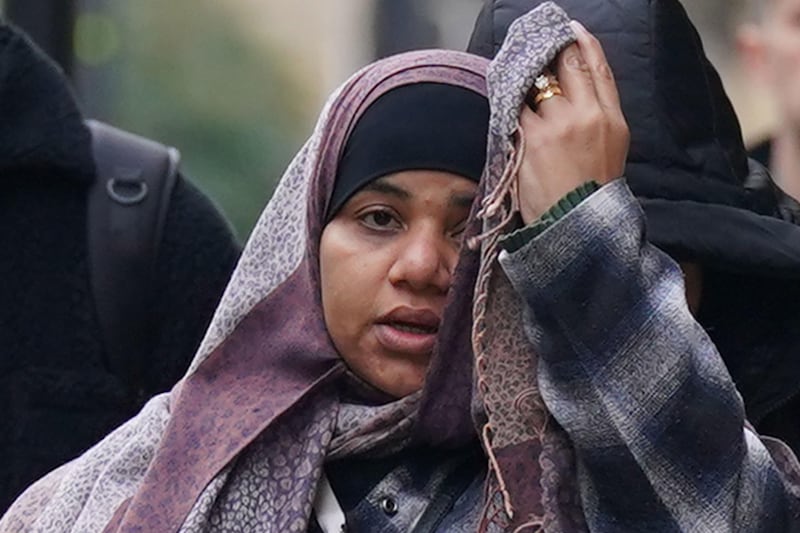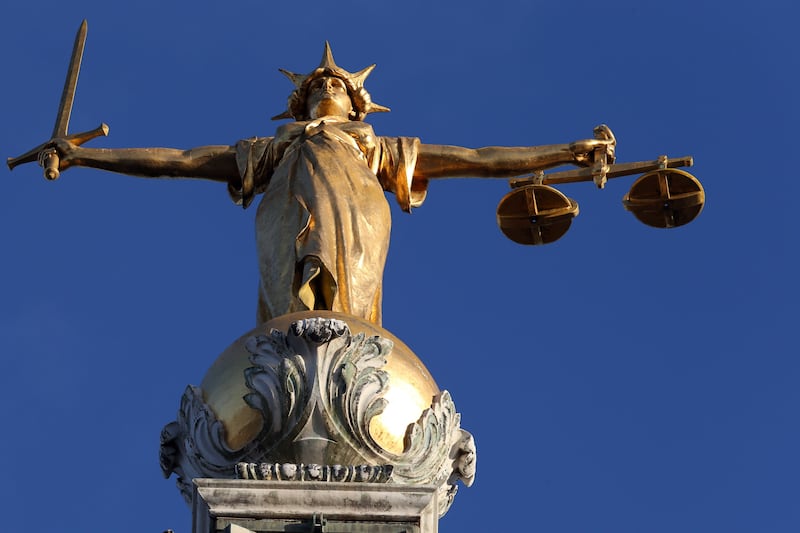FGM – or Female Genital Mutilation – is an emerging issue in Northern Ireland and across the UK. FGM is practised in some parts of the world but is without any medical basis and can cause long lasting damage to physical and mental health. The procedure is dangerous, illegal and a serious form of child abuse. More needs to be done to stamp it out.
UNICEF estimates that globally 125 million women and girls have suffered this violent procedure. The scale of the problem can remain hidden, though recent changes to data collection in England have uncovered nearly 6,000 cases. A similar study should be carried out in Northern Ireland.
NSPCC provides the government’s FGM helpline, available in Northern Ireland, and we have been working with partners to ensure we make the best help available to potential victims and survivors. Most calls to the NSPCC’s FGM helpline are made in July. This is because some girls are forced to undergo FGM in another country during the school holidays and have the immediate physical wounds heal by the time they return to school.
Progress has been made in the development of the Safeguarding Board NI-led practice network to prevent FGM here and we are working on other initiatives. The UK government has recently strengthened provisions in Northern Ireland by introducing FGM Protection Orders which police and social services use to protect potential victims.
Key to protecting girls is awareness raising for professionals (including teachers who play a key role) and working with leaders in communities where it has been traditionally been practised. Only close working across agencies and disciplines will help prevent this terrible abuse.
The public play an important role and anyone concerned about FGM should call our helpline on 0800 028 3550.
NEIL ANDERSON
Head of NSPCC in Northern Ireland
Some are in no position to point sectarian finger at others
Robert Lacey, ‘Honour these brave Irishmen’ (July 25), calls for us from the island of Ireland to honour those brave men, Catholic and Protestant, who sacrificed themselves fighting for the rights of small nations during the Great War. Mr Lacey is the latest to add his voice to what is termed the national amnesia and intolerance displayed by the Irish state towards those Irish who fought in British uniform in the Great War. Just where has Mr Lacey been these past few decades?
For the record, since 1986, a National Day of Commemoration has taken place on the first Sunday in July each year. This military and religious ceremony is held in the presence of the president of Ireland, An Taoiseach, members of the government, the Council of State, the diplomatic corp, the judiciary, Northern Ireland representatives, the main Christian denominations and representatives of the Jewish and Islamic faiths. Ireland’s Commemoration is devoid of military pomp and jingoism and is both respectful and dignified. Protocol and ceremonial are controlled by the Sovereign Irish State.
In 2011 former president Mary McAleese spoke at Suvla Bay commemorating those Irish who died during the invasion of Turkey and in 1998, in an unprecedented act of political ecumenism at Messines Ridge, President McAleese, alongside Queen Elizabeth II, dedicated a Peace Tower in memory of those from the entire island of Ireland who answered Redmond’s call and never returned.
The fact that we nationalists give our primary allegiance to those who established the Irish state, not to those who tried to prevent it, does not constitute neglect of those Irish who went away and never returned. On the contrary, the greatest abusers of those returning soldiers from the Great War was the British/unionist establishment.
When those Irishmen returned from France and Belgium expecting Home Rule they got the Black and Tans and auxiliaries instead. Those duped Irish soldiers also got Bloody Sunday in Croke Park. Tomás McCurtain the lord mayor of Cork, was shot dead in front of his family by members of the RIC and the city of Cork was burned down.
The elected mayors of Limerick, Seoirse Clancy and his predecessor Michael O’Callaghan, were also murdered by members of the RIC. While many families in Ireland had treasured photographs on their walls of their Somme dead who had given their young lives fighting for the rights of small nations, men in British army uniforms were kicking in their front doors as they ruthlessly suppressed those who were fighting for the rights of this small nation.
Those Catholics returning from France to the north of the country fared just as badly. They were denied employment by unionists which dominated the Catholic community by bigotry and discrimination in jobs, housing and voting as they were misruled by a sectarian ‘Protestant parliament for a Protestant people’.
From the murderous pogroms perpetrated against Catholics in Belfast in the 1920s, the ‘Catholic cleansing’ of the Harland and Wolff shipyards, to the burnings of hundreds of Catholic homes in Bombay Street in 1969, some of us are in no positions to look down our moral noses or point our sectarian fingers at others.
TOM COOPER
Irish National Congress, Dublin 7
Murdered for their faith
The murder of Fr Hamel by terrorists in France was a terrible killing. France and the world were, rightly, outraged.
Go back to the 1790s in the same country when most of the Catholic clergy refused to take an oath of loyalty to the new civil constitution. Mobs broke into abbeys and convents where Catholics had been interned and murdered 2,000 to 3,000 of them. Three bishops and 220 priests were among them.
In Paris 150 priests who refused to take the oath were put to death. Also hanged were eight Carmelite nuns. Priests were deported to New Guinea with very few of them surviving the journey. Of 762 priests who were put into ships, which were floating prisons, 527 died of disease.
The revolutionaries came up with a new idea to save on musket balls and powder. Men and women were stripped naked, tied together and thrown into the river in Nantes. Others were put into barges or boats which were then sunk and those in them were drowned. What was done to young Catholic women defies description.
So when you are remembering Fr Hamel remember all those other Catholics murdered for their faith in France long ago.
TONY CARROLL
Newry, Co Down
De facto slavery policy
Theresa May has made a token declaration of her determination to crack down on political and financial corruption, to narrow the social chasm. Britain is still host to ‘zero contract’ workers – a ‘precariat’ class working longer hours, running on the figurative treadmill to stay in the same place.
The de facto slavery we see today would have been unimaginable during past Labour governments.
May then ‘mans up’ by declaring that triggering the nuclear attack ‘option’ wouldn’t cost her a second thought. Who or what have the British now got as PM?
AIDAN CONVERY
Draperstown, Co Derry
Viewpoint on border poll
There has been a lot of media coverage of a Border Poll recently due to the EU Referendum result.
Consecutive secretaries of state have stated the conditions have not been met for this.
They have quoted differing reasons including odd surveys such as the Belfast Telegraph Life and Times Magazine.
I believe to really have a good idea if the people of Northern Ireland would like a border poll would be to include the question in the next
Northern Ireland census in 2021. The question should be: “If the economic conditions were favourable, would you vote for a United Ireland?”
Or something to that effect.
If the majority of the census returns provided a favourable result to this question, then the secretary of state at that time would have no other option other than pushing for a proper border poll.
The timing of this would be significant in that the people would be providing their viewpoint on the 100th anniversary of the formation of the state.
JOHN McSORLEY
Castlederg, Co Tyrone








